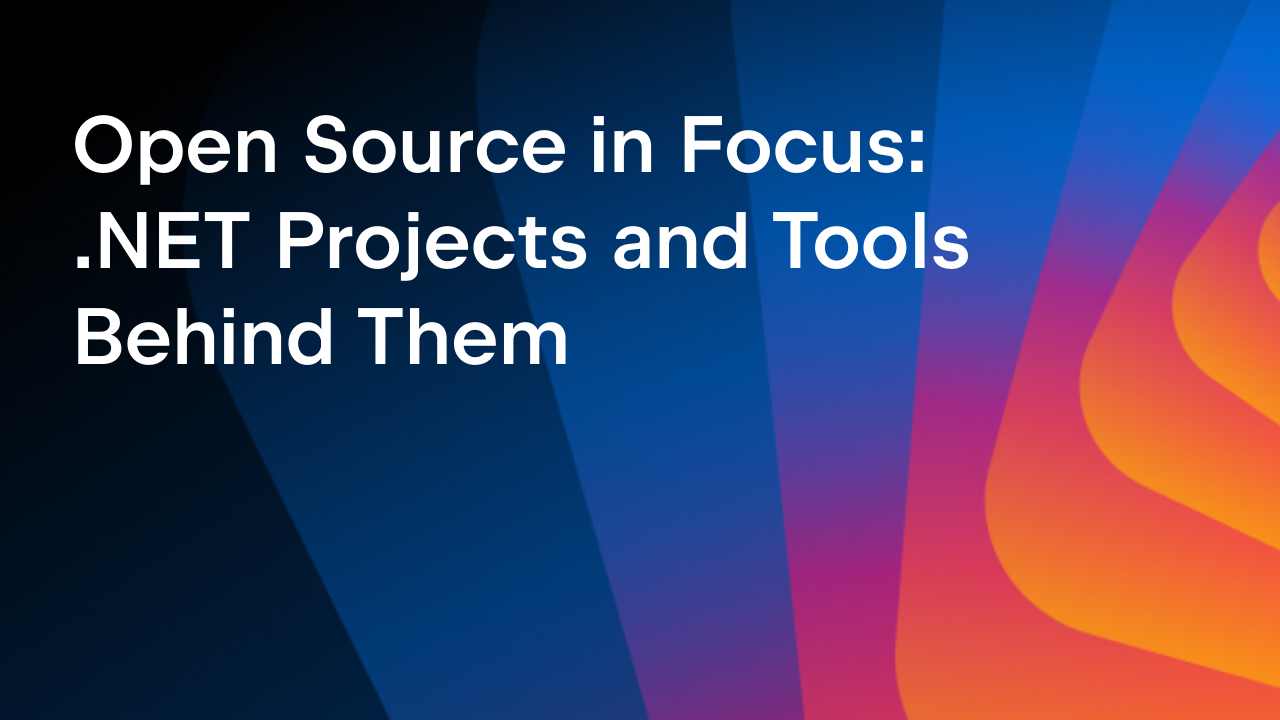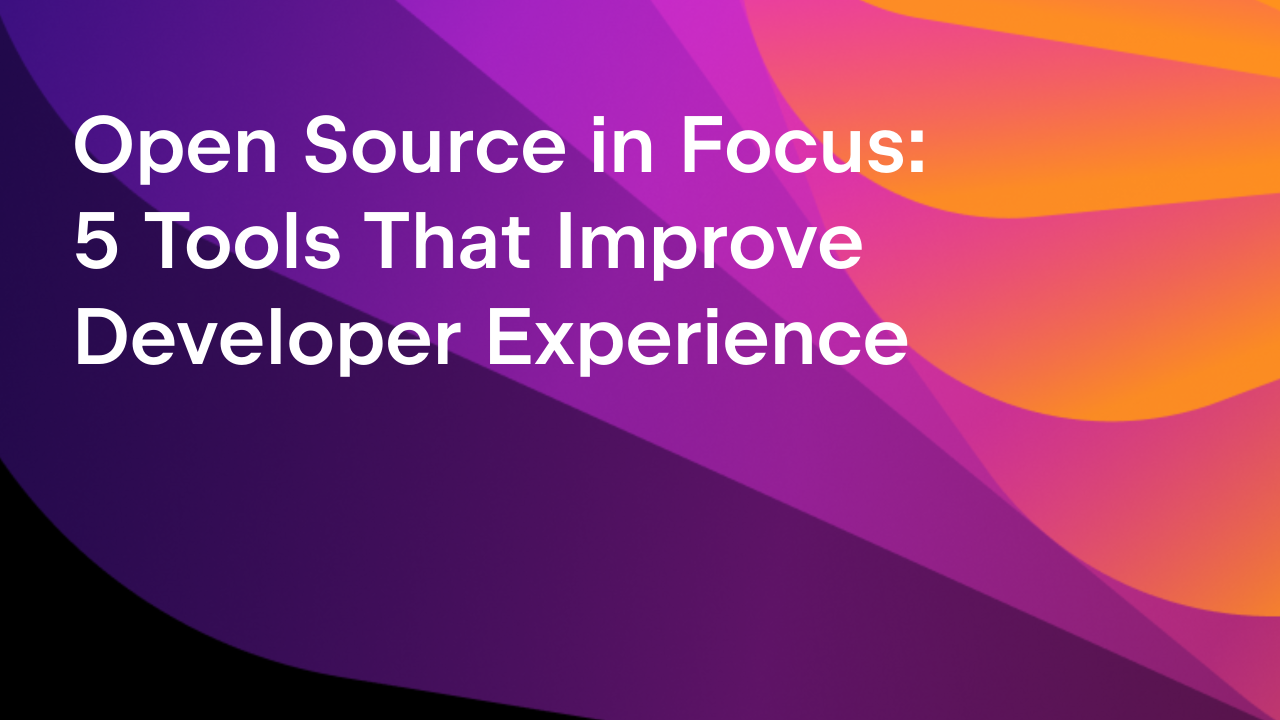Open Source in Focus: How Java OSS Teams Use IntelliJ IDEA – Part 2
In Part 1 of this series, we introduced some of the Java community’s most recognized open-source projects. Now, we’re back with more standouts: projects that speed up builds, strengthen testing, and simplify working with modern web stacks. And as always, IntelliJ IDEA helps maintainers move faster, confidently, and with a focus on quality.
jsoup
A Java library for working with real-world HTML.
With a name that reflects the messy “tag soup” of early web content, jsoup was created in 2009 after regex-based HTML parsing proved too fragile and in response to existing Java HTML libraries feeling clunky and limited. Inspired by the simplicity of jQuery, jsoup was designed to make HTML parsing in Java intuitive and enjoyable. Today, it offers easy-to-use tools for parsing, cleaning, and manipulating HTML, with support for HTML5, XML, sanitization, W3C APIs, and more.
IntelliJ IDEA is my go-to IDE – intuitive, powerful, and great at navigating code, data flows, and tests. Its inspections catch issues early, while built-in tools for testing, profiling, and dependency management have directly improved jsoup’s development.
— Jonathan Hedley, creator of jsoup
Even though jsoup is pretty mature at this point, development continues. Recent additions include native HTTP/2 request support for efficient connections and a fast new hybrid DOM+SAX-style StreamParser. Future plans include custom tag support, an improved pretty printer, and an enhanced HTML cleaner. If you’d like to help or have other ideas, visit the jsoup website to get involved!
http4k
A lightweight, functional toolkit for building HTTP services in Kotlin.
Inspired by Twitter’s Your Server as a Function paper, http4k began as a 40-line script and has grown into 180 modules. Built on pure functions with no dependencies or reflection, it’s fast and highly portable, running in memory, on 14 server backends, 6 serverless platforms, or as a GraalVM binary. With a focus on radical simplicity and extreme testability, http4k is designed to be the most testable web toolkit available today.
Being power users of IntelliJ IDEA, we are massive fans of JetBrains products. We not only use the refactoring abilities of the IDE to manipulate and remodel code reliably, but can also easily do cross-language development using the same keybindings.
— David Denton and Ivan Sanchez, creators of http4k
http4k keeps expanding, with recent additions including a Model Context Protocol (MCP) SDK for stateless, serverless deployment; Datastar integration; the TracerBullet module, which generates sequence diagrams of code behavior by running tests; and an upcoming transactional outbox module. As always, everything is built with composable functions and a strong focus on testability.
Selenide
A concise testing library for stable, readable, and fast UI tests.
Selenide was created out of necessity. At the time, there were no mature UI testing libraries for Java, and Selenium WebDriver required extensive boilerplate that made tests harder to read and slowed development. So, Andrei Solntsev distilled his internal automation tools into a concise, expressive library that simplifies the process of writing browser tests.
IntelliJ IDEA is my favorite IDE in every way – it even influenced the design of Selenide. I built the library so that IntelliJ IDEA could automatically suggest available methods, making it easy for developers to discover functionality without reading extensive documentation. Just type a dot and let the IDE guide you.
— Andrei Solntsev, creator of Selenide
Today, the Selenide team continues to focus on stable and readable tests, fast execution, and a smooth developer experience. They are actively working on BiDi protocol support, better docs, and more integration with evolving Selenium standards.
Flix
An effect-oriented programming language with a solid theoretical foundation.
Developed at Aarhus University, Flix combines functional, imperative, and logic programming paradigms. At the heart of Flix is its powerful effect system, featuring algebraic effects and handlers for improved modularity and code clarity, local mutation to isolate side effects within pure functions, and purity reflection, which allows for safe automatic parallelization and lazy evaluation.
Despite its academic roots, Flix is used for real-world applications, with a strong focus on performance, reliability, and the developer experience.
The Flix compiler is written primarily in Scala, and our development team works almost exclusively in IntelliJ IDEA – its built-in profiler has been instrumental in developing an efficient type inference implementation, and the debugging facilities see daily use in tracking down elusive bugs in the source code.
— Magnus Madsen, Flix core developer
The team is actively working toward a 1.0 release, continuing to improve the effect system and the developer experience, and providing more precise and actionable feedback at error sites.
Kobweb
A modern framework for building web applications in Kotlin.
Kobweb was born out of a desire to bring the power of Compose to web development using Kotlin. At the time, most web frameworks centered around JavaScript and TypeScript, with limited options for Kotlin developers. Compose HTML showed early promise, but the ecosystem was still young. Kobweb emerged as a response to that gap – a bold step toward enabling modern, declarative web development in Kotlin, using familiar tools like IntelliJ IDEA and Compose.
Kobweb encourages developers to use IntelliJ IDEA – especially for Kotlin, there’s nothing better. It’s packed with powerful features, like best-in-class refactoring tools, code analysis and navigation, and advanced editing features like multiple cursors, that are all worth mastering. If you use an IDE every day, take the time to really learn your tools – they’ll make you faster and better.
— David Herman, creator of Kobweb
Kobweb is approaching its 1.0 release, with plans to close remaining API gaps, introduce new UI widgets, enhance its IntelliJ IDEA plugin, and create short video tutorials for the community. You can follow the progress on the public roadmap. If you’re interested in contributing and have skills that align with any of these areas, the team would love to hear from you!
Whether you’re building frameworks, compilers, or libraries, these OSS projects show what’s possible when developers have the right tools. JetBrains is proud to support these initiatives that help keep the community growing.
Subscribe to JetBrains Blog updates






